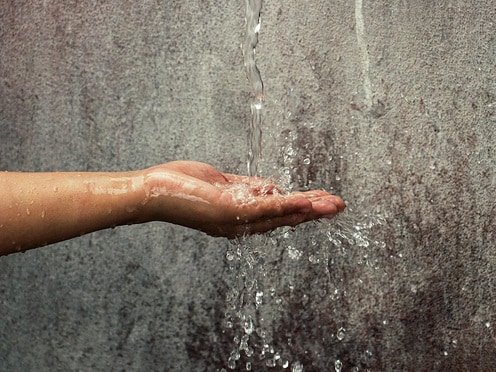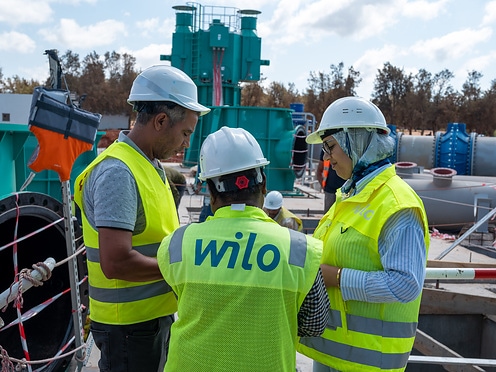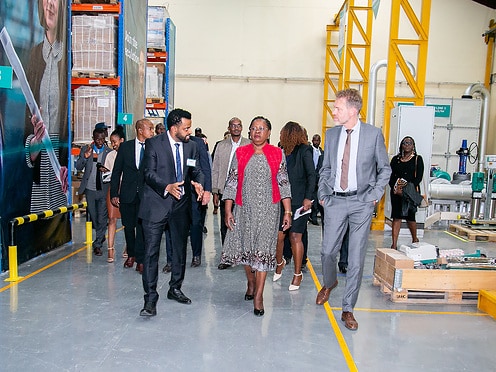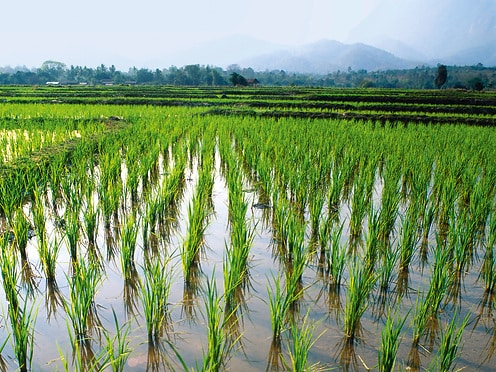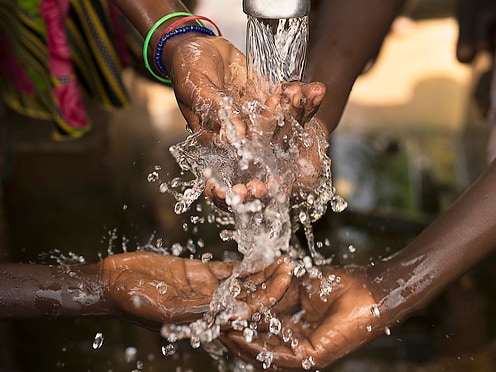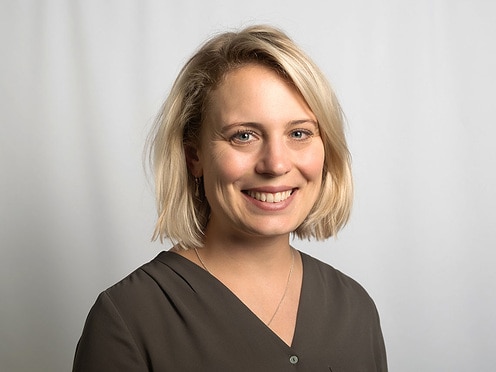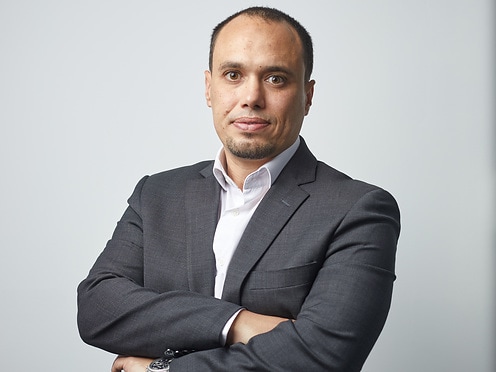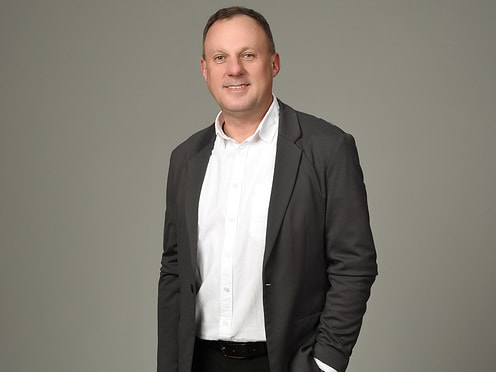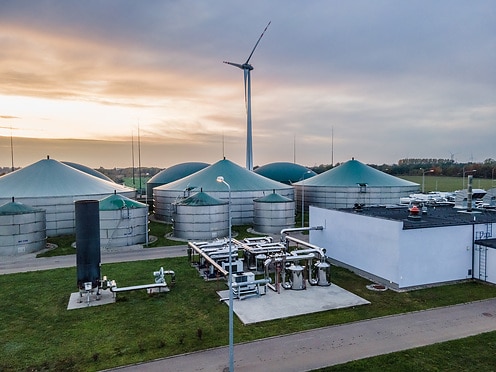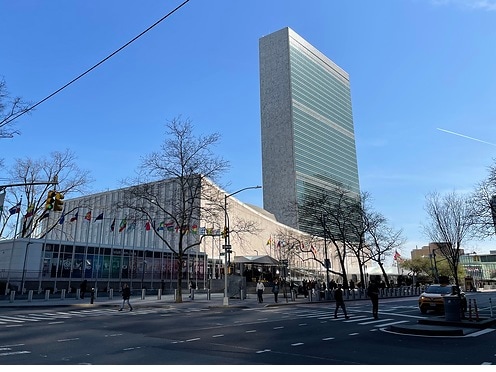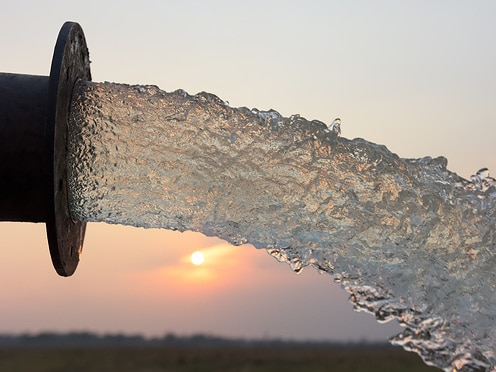Toshka: reclaiming land for sustainable use
First conceived decades ago, the Toshka project in southern Egypt has gained new momentum under the current presidency of Abdel Fattah el-Sisi. The aim is for the country to become less dependent on food imports. Wilo is supplying important technologies for irrigating the Egyptian deserts.
This article features:
The vision: arable land in the desert
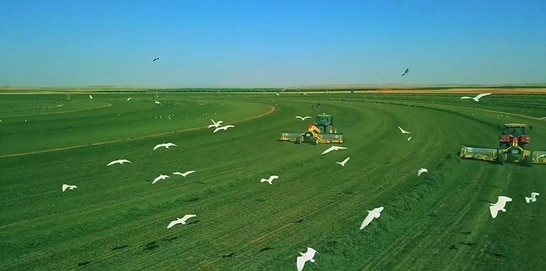
Back in the mid-1990s, former president Hosni Mubarak wanted to reclaim around one million acres of desert, an area about the size of Jamaica, and convert it into farmland. The strategic goal was to eventually make Egypt independent of grain imports and ensure a secure food supply. Thus, the Toshka project was born. Egypt, the most populated country in the Middle East, imports more wheat than any other nation in the world. The importance of a stable food supply for peace in the country was illustrated, for example, by the bread riots of 1977. Back then, the government wanted to raise the price of bread, a move which sparked protest among the population. Similarly, during the protests of the Arab Spring in 2011, people demanded ‘bread, freedom, human rights’.
“The strategic goal of the Toshka project is to make the country independent of wheat imports in the long term and to ensure a secure food supply.”
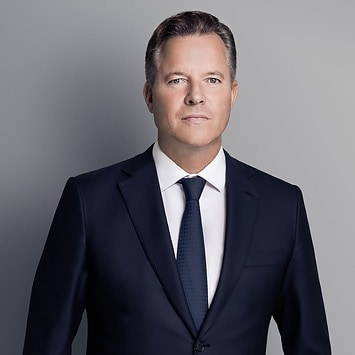
Global crises affect food supply
Global crises, protectionism and nationalism are challenging established alliances and international supply chains. This break from multilateral alliances has huge economic and socio-political consequences. The war in Ukraine, for instance, is causing disruptions that will have long-term effects. With Russia and Ukraine being two of the most important wheat exporters in the world, the military conflict in Eastern Europe has severely exacerbated food shortages, especially in Africa. Egypt needs long-term solutions if it wants to overcome its dependence on grain imports.
Increasing urbanisation
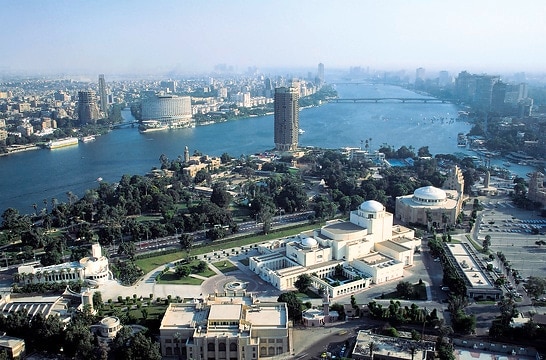
About 60 per cent of Egyptians currently live in cities or their immediate surrounding areas. Through a process known as urbanisation, these metropolitan areas are growing faster than the necessary infrastructure is being developed. More and more people are migrating from rural areas. Since 1980, Egypt’s population has grown from around 40 million to over 104 million people. By 2030, the population is expected to reach almost 120 million. One of the biggest issues, therefore, is ensuring a safe and sustainable supply of drinking and process water since 95 per cent of the country is desert.
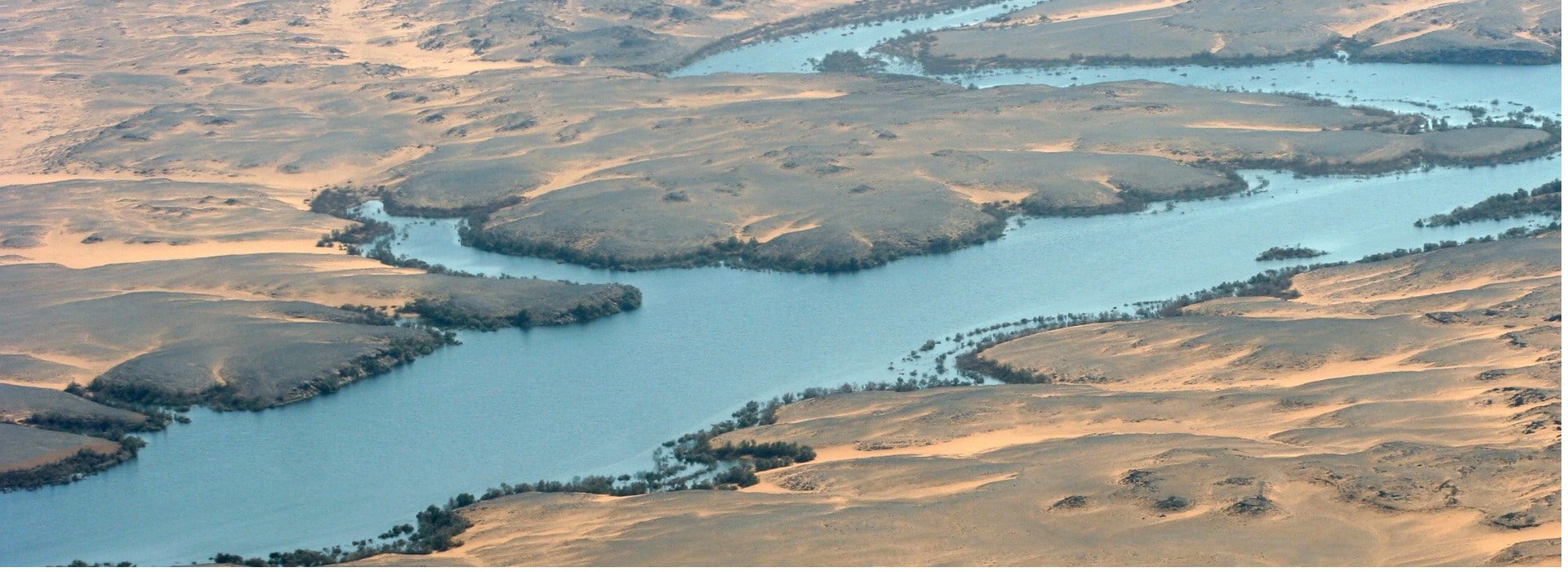
Mubarak Pumping Station: largest pumping station in the Arab world
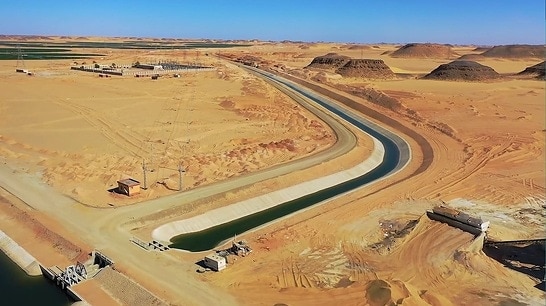
In the hot and dry southwest of the country, one of the world’s biggest pumping stations has been constructed. The Mubarak Pumping Station transports up to 1.2 million cubic metres of water per hour from Lake Nasser into the Sheikh Zayid Canal. It is the centrepiece of the Toshka project. Flood waters from the Nile used to seep away into the desert sand. Today, the vital waters are channelled.
Effectively irrigating the dessert
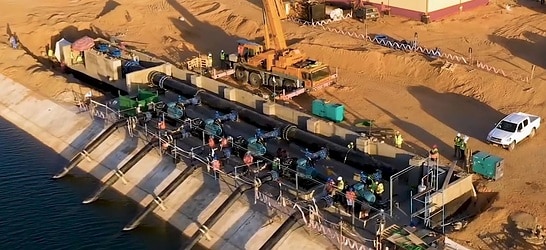
Withstanding extreme conditions: the Egyptian government is using more than 400 high-efficiency Wilo split case pumps, which can work in temperatures of up to 50 degrees Celsius and are sandstormand earthquake-proof.
In one of the first phases of the project, the Egyptian government is irrigating the desert using more than 400 high-efficiency Wilo split case pumps, which can work in temperatures of up to 50 degrees Celsius and are sandstorm- and earthquake-proof. Around 56,700 hectares of new arable land will be irrigated in this way. This is expected to require 5.5 billion cubic metres of water every year, which will be taken from Lake Nasser for this purpose.
This huge volume of water will permanently transform the desert into land that can be used for agriculture. In one of the world’s driest regions, however, it is no surprise that every drop of water is highly sought after. The Nile Water Treaty of 1959 sets out how much water Egypt is permitted to take from the Nile every year. Some of Egypt’s neighbours and other countries on the Nile fear that the Toskha project could exceed this amount. However, because Egypt’s water supply also depends on rainfall, groundwater and recycled agricultural drainage water, the government is optimistic that it can implement the project without exceeding the country’s quota of Nile water.
"Our team has done an outstanding job at the highest level to ensure that this massive task can be accomplished."
Toshka - Where does the name come from?
The Nile was dammed to create Lake Nasser, thelargest man-made lake in the world. To preventoverflowing when the Nile flooded, the excess water used to be diverted into the Toshka Depression,where it evaporated unused. Preventing this wastewas one of the reasons behind the government’sdecision to launch the Toshka project.
Neighbourly criticism
For decades, the ten countries bordering the Nile Basin have been engaged in controversial, sometimes heated debates about the use of the Nile’s waters. It is not surprising that one of the driest regions in the world argues over every drop of water. North Africa and the Middle East are home to more than six per cent of the world’s population, yet natural sources there contain less than two per cent of the earth’s renewable freshwater. Many of Egypt’s neighbours therefore view the project with concern. Nevertheless, with an annual rainfall of 1 billion m³, 7.5 billion m³ of groundwater and 5 billion m³ of recycled agricultural drainage water, the Egyptian government is optimistic that it can implement the project without increasing the country’s quota of Nile water.
‘The Toshka project is a contribution to securing the food and water supply in Egypt. We want to support the country in becoming less dependent on grain imports and help secure the livelihoods of many millions of people.’
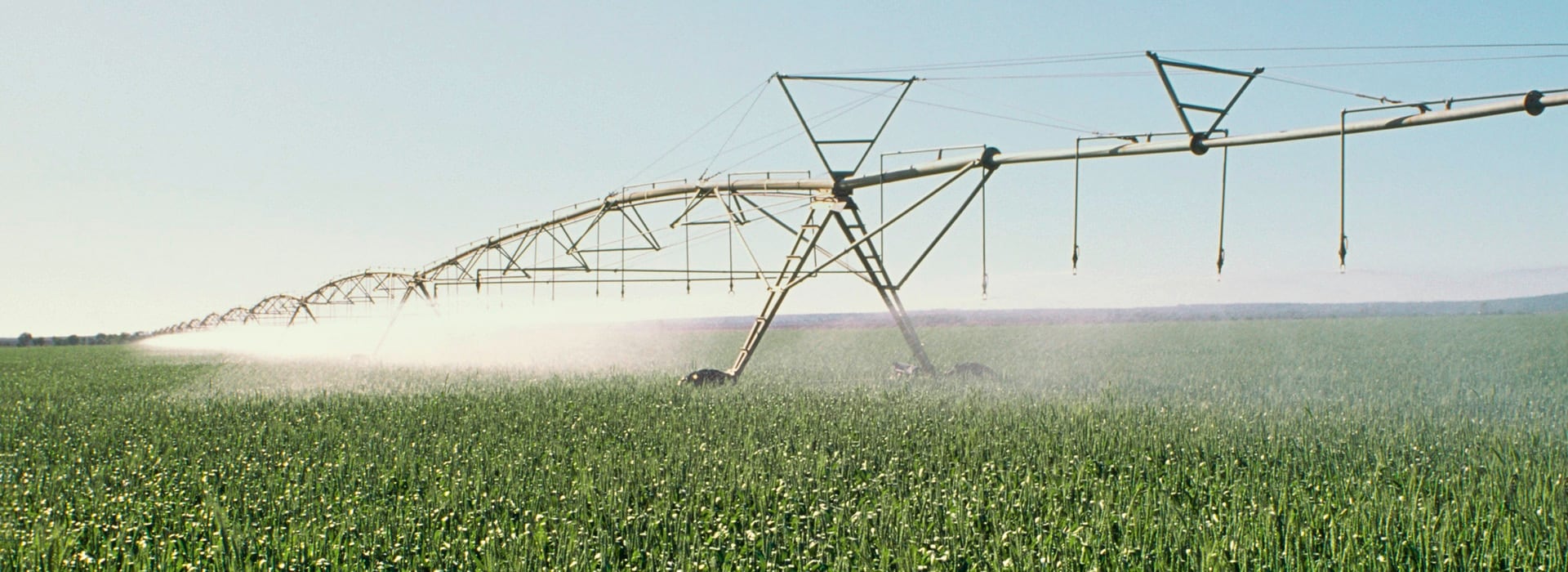
Harvest in Toshka: first crops bear fruit
In April 2022, Egyptian President Abdel Fattah al-Sisi visited the Toshka region to mark the start of the harvest season. At the same time, he inspected the status of construction work on the project. Four construction phases have already been completed, and others are being developed as part of the long-term partnership between Wilo and the Egyptian state. Here, the focus is on targeted measures to secure the food and water supply. Wilo is committed to a responsible and sustainable use of resources, especially water. ‘The Toshka project is a contribution to securing the food and water supply in Egypt. We want to support the country in becoming less dependent on grain imports and help secure the livelihoods of many millions of people,’ explains Oliver Hermes, President & CEO of the Wilo Group.
Summary: ‘Egypt Vision 2030’ sustainable development for Egypt
Egypt has been working on a project to irrigate the desert and relieve urban centres since back in the mid-1990s. The Toshka project, as it is known, plays a crucial role in the implementation of the ‘Egypt Vision 2030’ strategy. The aim is to increase the country’s arable area to 25 per cent. Since global political crises and the challenges of climate change are increasingly complicating the food and water supply in North Africa, this project aims at long-term independence from grain imports. Moreover, despite critical voices from neighbouring countries, Cairo is confident that this project can be implemented with the available water resources. The first yields are already visible: in April 2022, the harvest season started in Toshka as President Abdel Fattah al-Sisi looked on. In cooperation with the Egyptian government, Wilo is providing solutions to support the expansion of the project and ‘Egypt Vision 2030’.


